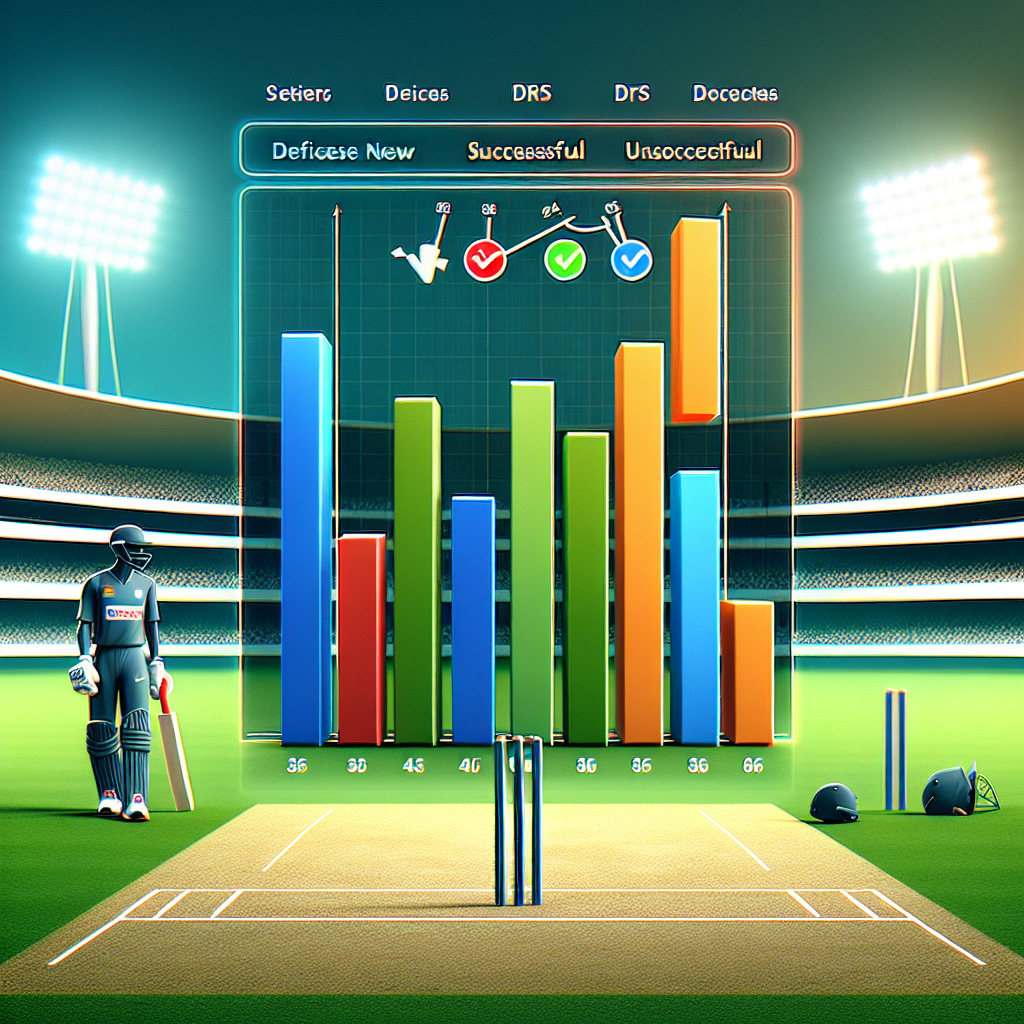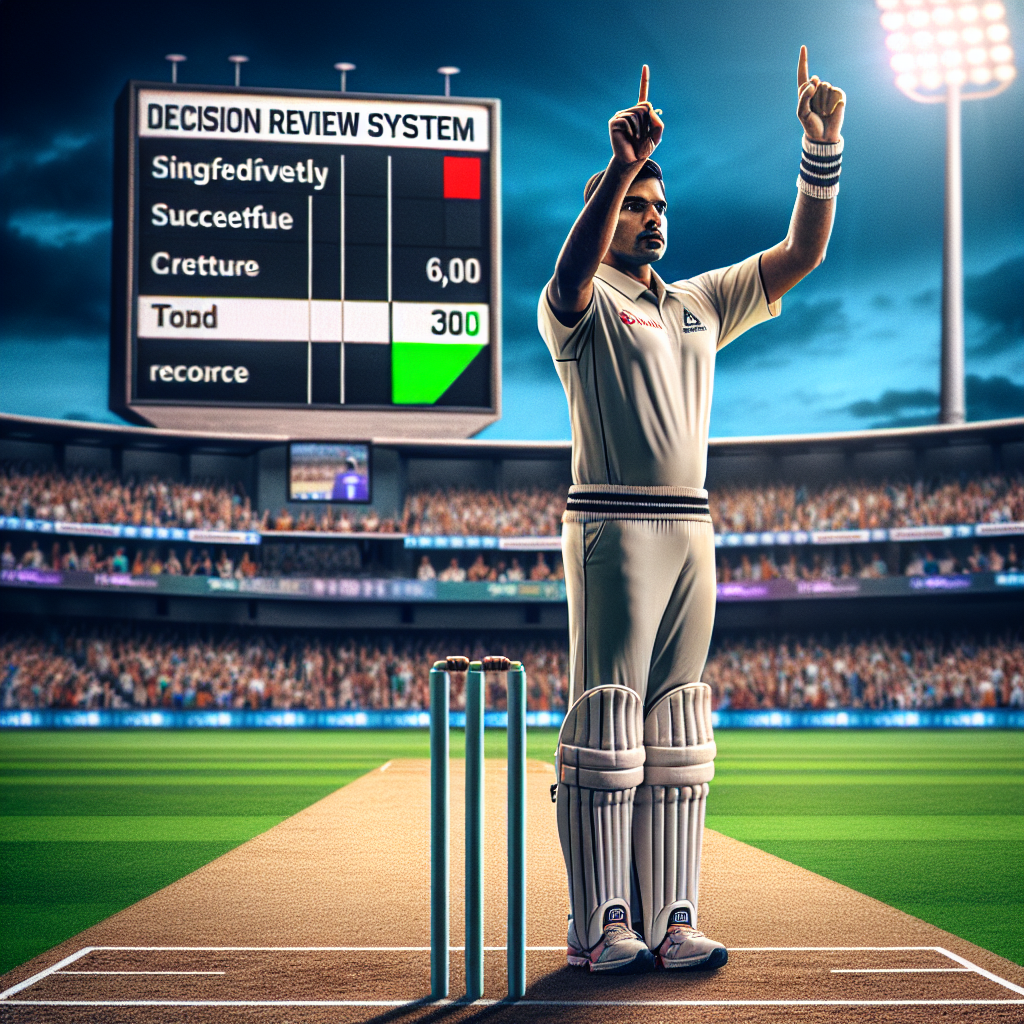MS Dhoni and the DRS: A Masterclass in Decision Making

Mahendra Singh Dhoni, often referred to as “Captain Cool,” is renowned for his calm demeanor and sharp cricketing acumen. Among his many contributions to Indian cricket, his exceptional use of the Decision Review System (DRS) stands out. This article delves into Dhoni’s remarkable DRS record, exploring how his strategic mind and instinctive decision-making have made him a legend in this aspect of the game.
Understanding the Decision Review System (DRS)
The Decision Review System, introduced in international cricket in 2008, allows teams to challenge on-field umpire decisions. It involves the use of technology, such as ball-tracking and snickometer, to review decisions related to dismissals. While the system aims to reduce human error, its success largely depends on the captain’s ability to make accurate judgments.
Dhoni’s Mastery of the DRS
MS Dhoni’s proficiency with the DRS is not just a matter of luck; it is a testament to his deep understanding of the game and his players. His success rate with DRS calls is significantly higher than many of his contemporaries, earning him the nickname “DRS Dhoni.”
The Numbers Speak
- During his captaincy, Dhoni’s success rate with DRS was approximately 86%, a figure that surpasses many international captains.
- In Test matches, his DRS success rate was around 90%, showcasing his ability to make critical decisions under pressure.
- In ODIs and T20s, his success rate hovered around 80%, still an impressive figure given the fast-paced nature of these formats.
Case Studies: Dhoni’s Iconic DRS Calls
Several instances highlight Dhoni’s exceptional use of the DRS. Here are a few notable examples:
India vs. Australia, 2017
In a Test match against Australia in 2017, Dhoni’s decision to review an LBW appeal against Steve Smith was a game-changer. The on-field umpire had given Smith not out, but Dhoni’s instinct led him to challenge the decision. The review showed the ball hitting the stumps, and Smith was dismissed, shifting the momentum in India’s favor.
India vs. England, 2016
During an ODI series against England, Dhoni’s decision to review a caught-behind appeal against Jos Buttler was another masterstroke. The on-field umpire had ruled Buttler not out, but Dhoni’s confidence in his bowler’s appeal led to a successful review, resulting in a crucial wicket for India.
The Science Behind Dhoni’s Success
Dhoni’s success with the DRS is not merely a result of intuition; it is backed by a methodical approach and a keen understanding of the game.
Reading the Game
Dhoni’s ability to read the game and anticipate the batsman’s moves is unparalleled. His experience as a wicketkeeper gives him a unique perspective, allowing him to assess the trajectory of the ball and the batsman’s intent with precision.
Trust in Teammates
Dhoni’s leadership style involves empowering his teammates and trusting their instincts. He often consults with bowlers and fielders before making a DRS call, ensuring that the decision is a collective one. This collaborative approach not only boosts team morale but also increases the likelihood of a successful review.
Calm Under Pressure
One of Dhoni’s defining traits is his ability to remain calm under pressure. This composure allows him to make rational decisions, even in high-stakes situations. His calm demeanor is infectious, instilling confidence in his team and enabling them to perform at their best.
Comparing Dhoni’s DRS Record with Other Captains
While many captains have had access to the DRS, few have matched Dhoni’s success rate. Comparing his record with other notable captains provides further insight into his exceptional ability.
Virat Kohli
Virat Kohli, Dhoni’s successor as captain, has had a mixed record with the DRS. While he has made some successful reviews, his overall success rate is lower than Dhoni’s, highlighting the latter’s unique skill set.
Ricky Ponting
Ricky Ponting, one of Australia’s most successful captains, had a relatively lower success rate with the DRS. His aggressive style of play sometimes led to impulsive reviews, contrasting with Dhoni’s calculated approach.
Kane Williamson
Kane Williamson, known for his tactical acumen, has a commendable DRS record. However, even he falls short of Dhoni’s success rate, underscoring the Indian captain’s exceptional decision-making skills.
The Legacy of “DRS Dhoni”
MS Dhoni’s legacy as a master of the DRS is firmly established. His ability to make accurate decisions under pressure has set a benchmark for future captains. As cricket continues to evolve, Dhoni’s approach to the DRS serves as a valuable lesson in the importance of strategic thinking and teamwork.
Lessons for Future Captains
- Understanding the game: A deep understanding of the game and its nuances is crucial for making successful DRS calls.
- Trusting teammates: Empowering teammates and valuing their input can lead to more informed decisions.
- Staying calm: Maintaining composure under pressure is essential for making rational decisions.
Conclusion
MS Dhoni’s record with the DRS is a testament to his exceptional cricketing mind and leadership skills. His ability to make accurate decisions under pressure has not only contributed to India’s success on the field but has also set a standard for future captains. As the game of cricket continues to evolve, Dhoni’s legacy as “DRS Dhoni” will undoubtedly inspire generations of cricketers to come.


